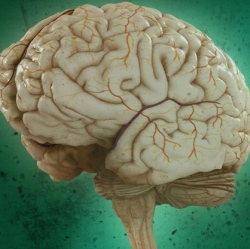
A machine-learning technique that has already given computers an eerie ability to recognize speech and categorize images is now creeping into industries ranging from computer security to stock trading. If the technique works in those areas, it could create new opportunities but also displace some workers.
Deep learning, as the technique is known, involves applying layers of calculations to data, such as sound or images, to recognize key features and similarities. It offers a powerful way for machines to recognize similarities that would normally be abstruse to a computer: the same face seen from different angles, for instance, or a word spoken in different accents.
When combined with huge quantities of training data and computer systems capable of powerful parallel computations, the technique has resulted in dramatic progress in recent years, especially in voice and image recognition. For example, Google uses deep learning for voice recognition on Android phones, while Facebook uses the technology to identify friends in users’ photographs.
Other tech companies are following. At an event in Boston last week, two researchers from eBay described how the company is using deep learning to categorize products in images posted by sellers. By studying images that have already been tagged, the system can tell the difference, for example, between a pair of flip-flops and a pair of flats. This is helping to improve eBay’s search engine, especially for products that haven’t been tagged very well.
People in other fields and industries are starting to show an interest in deep learning. At the Boston event, researchers, engineers, and entrepreneurs discussed progress in the field and its potential application in advertising, finance, and medicine. One attendee who had previously applied machine learning techniques to hedge funds had founded a startup to use deep learning to predict market shifts like a sudden plunge in a currency’s value. Another attendee, from a major U.S. insurance company, was looking into using deep learning to identify fraudulent claims.
Andrew Ng, a leading figure in the field, and both an associate professor at Stanford and chief scientist at the Chinese company Baidu, said at the conference that deep learning has already proven useful. “One of the things Baidu did well early on was to create an internal deep learning platform,” Ng said. “An engineer in our systems group decided to apply it to decide a day in advance when a hard disk is about fail. We use deep learning to detect when there might’ve been an intrusion. Many people are now learning about deep learning and trying to apply it to so many problems.”
